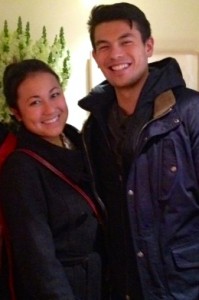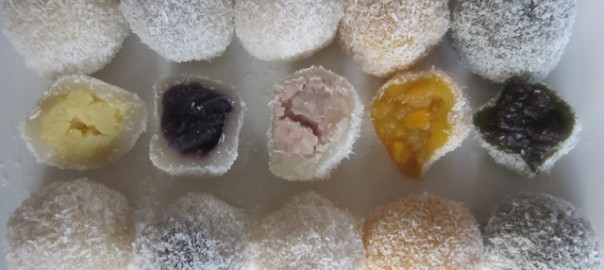【RocketNews24】Six (and a half) essential resources for learning Japanese
Posted by Michelle Lynn Dinh (Shimane-ken, Chibu-mura, 2010–13), editor and writer for RocketNews24. The following article was written by Philip Kendall (Fukushima-ken, Shirakawa-shi, 2006–11), senior editor and writer for RocketNews24, a Japan-based site dedicated to bringing fun and quirky news from Asia to English speaking audiences.

As we’ve said before, Japanese isn’t actually as hard to learn as it’s often made out to be. Unlike English, for example, Japanese follows its own grammatical rules far more rigidly, pronunciation is easy because there is only one variant of each vowel sound to choose from (none of this tomayto/tomahto business), and it’s possible to create entire, perfectly meaningful and valid sentences without uttering a single pronoun or bothering to conjugate a verb.
Nevertheless, the language will not magically seep into you through a desire to speak it alone — you still need to encounter and study it as often as possible. With that in mind, we’d like to present to you the six and a half resources that no dedicated student of the Japanese language should ever be without. Oh, and the good news is some of them are completely free.
WIT Life #267: Japan’s underutilized female resources
WIT Life is a periodic series written by professional Writer/Interpreter/Translator Stacy Smith (Kumamoto-ken CIR, 2000-03). She starts her day by watching Fujisankei’s newscast in Japanese, and here she shares some of the interesting tidbits and trends along with her own observations.
Early this month I attended a Japan Society event regarding empowering women in the U.S. and Japan. The featured speakers were former Diet member, Minister of the Environment and Minister of Foreign Affairs Yoriko Kawaguchi, and Morgan Stanley Chief Financial Officer Ruth Porat. The conversation was moderated by Columbia Professor of History Carol Gluck, a Japanologist who has written several books on Japanese history. Some of the topics to be addressed were gender disparity issues, using quota systems to increase numbers of women executives and work-life balance, so it was guaranteed to be an interesting discussion.
Kawaguchi pointed out that a mentality change on the part of both employers and women themselves is needed. M![kate_hesson_juggles_work_and_family__1610129638[1]](http://jetwit.com/wordpress/wp-content/uploads/2014/04/kate_hesson_juggles_work_and_family__16101296381-150x150.jpg) any Japanese women strive for nothing more than having a happy, healthy family, not even conceiving that they could reach the levels of upper management. Of course, this creates a chicken and egg scenario as there are few female role models in these positions so they don’t have many predecessors in whose footsteps they can follow. Porat remaked that when she started out there were few female managers she could look up to, but credited her advancement partially to male superiors who recognized her skills and took a chance on her. Kawaguchi stressed that there is a Read More
any Japanese women strive for nothing more than having a happy, healthy family, not even conceiving that they could reach the levels of upper management. Of course, this creates a chicken and egg scenario as there are few female role models in these positions so they don’t have many predecessors in whose footsteps they can follow. Porat remaked that when she started out there were few female managers she could look up to, but credited her advancement partially to male superiors who recognized her skills and took a chance on her. Kawaguchi stressed that there is a Read More
Re: Cultural Identity
Via AJET Chair Kay Makishi. Posted by blogger and podcaster Jon Dao (Toyama-ken, 2009-12).
[Kay’s Note: This is a really good article that adds more to the dialogue concerning how we determine identity– written by a Fukuoka JET. Check it out!]
————————————————————————————————————

For many of us who work in the high school system, I’m sure you had a tearful, reflective experience at your recent graduation ceremony. At my school in the tiny suburb of Jojima, I watched each newly-minted adult stand up when their name was called in a moment of recognition, and then they were folded back into the crowd. It made me think about the class as a unit, about how they grew and learned together and how now they were shedding their safe identities as students of this school. I also couldn’t help thinking how each of them had probably never left this town for more than a week. It was likely that they had never even left Fukuoka at all. Giving all this up was a turning point in their lives, and they would all think back and recognize the significance someday in the future. Read More
【RocketNews24】Eight Japanese words we’d love to import into English
Posted by Michelle Lynn Dinh (Shimane-ken, Chibu-mura, 2010–13), editor and writer for RocketNews24. The following article was written by Casey Baseel, a writer and translator for RocketNews24, a Japan-based site dedicated to bringing fun and quirky news from Asia to English speaking audiences.
Recently, we talked about how Japanese, while a tough language to learn, isn’t quite as difficult as some horror stories make it out to be. Still, if English is your native language, certain Japanese grammar rules, like saying “wa” and “o” to mark the subject and object of your sentences, can seem like a major hassle.
With practice, though, these things start to become automatic. Even better, the Japanese language is filled with incredibly handy phrases that we’d love to import into English.
【RocketNews24】You know you’ve been in Japan too long when…
Posted by Michelle Lynn Dinh (Shimane-ken, Chibu-mura, 2010–13), editor and writer for RocketNews24. The following article was written by Philip Kendall (Fukushima-ken, Shirakawa-shi, 2006–11), senior editor and writer for RocketNews24, a Japan-based site dedicated to bringing fun and quirky news from Asia to English speaking audiences.

So you’ve been living, lounging, working, or studying in Japan for a while now. The feelings of homesickness you first experienced are but a distant memory, and whenever you Skype with your family, you unconsciously use the word “home” to refer to your place in Japan rather than your home country. Not only that, you can finally navigate the Tokyo Metro without getting flustered, barely even notice when a girl dressed in kimono passes you in the street, and you think nothing of visiting a convenience store two or three times a day, sometimes just to flick through the magazines.
But what about all of the things you do unconsciously or that seem so normal to you now but would make you stop and stare back home? Today, we bring you a list of 10 moments that, if and when they happen to you, you can safely say, “Wow, I’ve been in Japan too long.”
WIT Life #266: Kajitsu Spring Tasting Reception
WIT Life is a periodic series written by professional Writer/Interpreter/Translator Stacy Smith (Kumamoto-ken CIR, 2000-03). She starts her day by watching Fujisankei’s newscast in Japanese, and here she shares some of the interesting tidbits and trends along with her own observations.
Over the weekend I had the chance to take part in the delectable Spring Tasting Reception held at Kajitsu/Kokage. For those of you who don’t know this spot, it’s about as close as you can get to Japan here in NYC. Last year I celebrated my birthday with a delicious meal at Kajitsu, the restaurant on the upper floor featuring 精進料理 (shojin ryouri), vegan cuisine devised centuries ago by Buddhist monks which was the predecessor to kaiseki .
In the first four years of its existence Kajitsu was located in the East Village, but it moved to its midtown location a year ago. Aside from Kajitsu occupying the second floor, Kokage on the first floor serves non-vegetarian Japanese food and Ippodo near the entrance sells Japanese tea. There is literally something for everyone, and both restaurants are open for both lunch and dinner.
This event was celebrating the promotion of the Executive Sous Chef Hiroki Odo to Executive Chef, as current Executive Chef Ryota Ueshima is returning to Japan. The amazing spread featured Read More
Posted by Jayme Tsutsuse (Kyoto-fu, 2013-Present), job poster for JETwit and organizer of Cross-Cultural Kansai, seeking work opportunities in NYC starting in August 2014!
I recently returned to Kyoto after spending a week in New York City. Before my trip, I worried that I would experience what is called reverse culture shock, but shortly after returning to American soil, I realized the mistake in my worries. What I experienced wasn’t the culture shock of returning to a home that feels strangely between familiar and foreign. It was the culture shock of a completely novel experience.
It really didn’t take long after landing for this culture shock to set in. My boyfriend, Jeff, and I, both half-Japanese, born and raised in America, were riding an escalator up from JFK’s international arrivals lobby to the Airtram terminal. We were caught up in each other presence, having been apart for months, when suddenly, the lady on the downward escalator turned to us with a larger-than-life smile and enthusiastically called out, “Chinese“, waving her hand in our direction. We locked eyes with her, stunned, as she gradually disappeared down the escalator. Jeff and I stared each other up and down, searching for something that would have brought on the lady’s quick judgement. The man behind us rhetorically remarked, “What the hell was that about?”
The act itself wasn’t offensive or hurtful, but I could’t quite shake it from my thoughts. Granted a large international airport may be an easy place to act on an assumption that someone is foreign, but wouldn’t a simple hello suffice? Or Welcome to America if you must.
For months, I had been telling the people I met in Japan about America’s diversity – about how easy it is to blend in in the bigger cities, about how it is impossible to make judgements on whether or not someone is American. I’ve always claimed that on the subway in America, you can’t guess who is foreign on the basis of their race, appearance, language, or actions. But there we were in what’s said to be one of America’s most diverse cities, being incorrectly called out for our… ethnicity? nationality? identity?
【RocketNews24】There’s something about sakura: It’s hard not to fall in love with Japan’s cherry blossom【Videos】
Posted by Michelle Lynn Dinh (Shimane-ken, Chibu-mura, 2010–13), editor and writer for RocketNews24. The following article was written by Philip Kendall (Fukushima-ken, Shirakawa-shi, 2006–11), senior editor and writer for RocketNews24, a Japan-based site dedicated to bringing fun and quirky news from Asia to English speaking audiences.
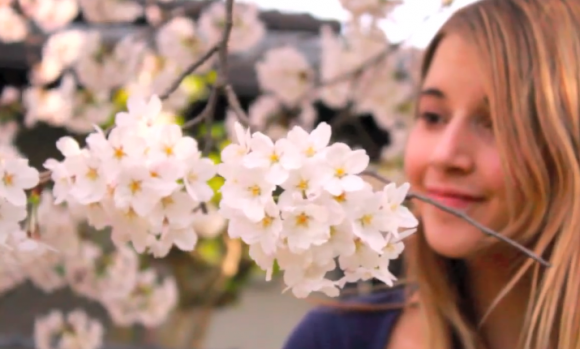
Spring has arrived in Japan, and that can mean only one thing: Hanami, or cherry blossom viewing parties! But what is it about hanami, and those pretty pink petals in general for that matter, that manages to capture the hearts and minds of so many?
Let’s take a look at a handful of videos that capture the mood of hanami season perfectly and see if we can pinpoint exactly what it is that makes the season so special!
L.M. Zoller (CIR Ishikawa-ken, Anamizu, 2009-11) is the editor of The Ishikawa JET Kitchen: Cooking in Japan Without a Fight. Ze works in international student exchange; writes I’ll Make It Myself!, a blog about food culture in Japan and the US; curates The Rice Cooker Chronicles, a series of essays by JETs and JET alumni on the theme of cooking/eating and being alone in Japan; and admins The JET Alumni Culinary Group on LinkedIn.
While searching for information on the 2014 sakura doughnut line-up (which appears not to be happening*), I stumbled upon this announcement from Mister Donut: the cronut is coming to Japan.
WIT Life #265: NY Peace Film Festival
WIT Life is a periodic series written by professional Writer/Interpreter/Translator Stacy Smith (Kumamoto-ken CIR, 2000-03). She starts her day by watching Fujisankei’s newscast in Japanese, and here she shares some of the interesting tidbits and trends along with her own observations.
This past weekend I had the opportunity to attend the NY Peace Film Festival co-hosted by my lovely friend Yumi Tanaka. This year highlighted 11 films over the course of the weekend, many with Q&As with their directors following the screenings. I was lucky enough to be able to interpret for two of the Japanese filmmakers who were Skyped in from Japan for their Q&As (a first for me!). Saturday night featured the documentaries The Targeted Village by Chie Mikami and X Years Later by Hideki Itoh.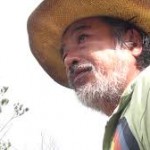
The first film focuses on a small village in Okinawa called Takae, which happens to be situated between two American military bases. Residents are fighting against the construction of new helipads in Takae, being installed in preparation for the deployment of Osprey. Their story embodies U.S. military strategy dating back to the Vietnam War, the blocking of the gates to the Futenma base, and their town’s rage against their state.
Depicted here is one of the main characters profiled in the film, a local farmer and father of 4 who just wants to ensure that his children can continue to live their quiet lives. In one scene his young son asks how they will be able to study at school with all the noise from the Osprey flying overhead. The farmer takes part in protests again the helipad construction, and unbelievably the Japanese government brings a case of “traffic obstruction” against not only him and several other peaceful protesters but his 7-year old daughter who was Read More
L.M. Zoller (CIR Ishikawa-ken, Anamizu, 2009-11) is the editor of The Ishikawa JET Kitchen: Cooking in Japan Without a Fight. Ze works in international student exchange; writes I’ll Make It Myself!, a blog about food culture in Japan and the US; curates The Rice Cooker Chronicles, a series of essays by JETs and JET alumni on the theme of cooking/eating and being alone in Japan; and admins The JET Alumni Culinary Group on LinkedIn.
This rich dessert showcases two of my favorite Japanese flavors for sweets together in a visually impressive cake.
I’ll Make It Myself!: Honey Cream Scones with Nuts
L.M. Zoller (CIR Ishikawa-ken, Anamizu, 2009-11) is the editor of The Ishikawa JET Kitchen: Cooking in Japan Without a Fight. Ze works in international student exchange; writes I’ll Make It Myself!, a blog about food culture in Japan and the US; curates The Rice Cooker Chronicles, a series of essays by JETs and JET alumni on the theme of cooking/eating and being alone in Japan; and admins The JET Alumni Culinary Group on LinkedIn.
Here’s an easy and delicious recipe you can make in your oven range in Japan!
I had extra cream from the Sailor Uranus cake, so I decided to try a cream scone recipe. Cream scones use heavy cream in place of the egg and butter, which makes them light and airy–and there’s no need to deal with cutting flour into cold butter. Very easy.
I’ll Make It Myself! Kickstarter: Amy’s Mochi (Seattle)
L.M. Zoller (CIR Ishikawa-ken, Anamizu, 2009-11) is the editor of The Ishikawa JET Kitchen: Cooking in Japan Without a Fight. Ze works in international student exchange; writes I’ll Make It Myself!, a blog about food culture in Japan and the US; curates The Rice Cooker Chronicles, a series of essays by JETs and JET alumni on the theme of cooking/eating and being alone in Japan; and admins The JET Alumni Culinary Group on LinkedIn.
Look at these luscious hand-made mochi! I found this Kickstarter via Have You Nerd? and, readers, I need this in my life. Amy’s Mochi is fundraising to cover the costs of starting up in Seattle – kitchen equipment, website, marketing, research and development – with the intent to sell them at weekly events (farmers’ markets) and/or pop-up shops. Kickstarter here: Amy’s Mochi by Amy Eam — Kickstarter. Ends March 28, 2014!
WIT Life #264: Campaign
WIT Life is a periodic series written by professional Writer/Interpreter/Translator Stacy Smith (Kumamoto-ken CIR, 2000-03). She starts her day by watching Fujisankei’s newscast in Japanese, and here she shares some of the interesting tidbits and trends along with her own observations.
Yesterday I went to see director Kazuhiro Soda’s documentary Campaign (選挙) at Japan Society, being shown as part of Richie’s Electric Eight: The Bold and the Daring (part 2 of the film series honoring Ritchie that I talked about in a recent post). It came out in 2007 and was screened at the Berlin Film Festival that year, and was loved by Ritchie who introduced it at a preview at Tokyo’s Foreign Correspondents Club of Japan. This fascinating, self-funded film follows Soda’s Tokyo University (東大) classmate Kazuhiko Yamauchi in becoming the LDP candidate in a by-election for a seat on the Kawasaki City Council, after relocating there from Tokyo for that purpose. Campaign tells the story of how Yamauchi is groomed as a promising newcomer for this well-established conservative party. The LDP is killing it with Prime Minister Junichiro Koizumi and his reform platform on the national level, but engaged in a close battle with the DPJ on the local level.
Yamauchi’s education extends to his wife Sayuri, a particularly interesting character in the film. He is instructed to refer to her as his “housewife” (「家内」 or kanai) as opposed to “wife” (「妻」 or tsuma), a term they both take umbrage against but become resigned to using. In addition, Yamauchi’s supporters within the LDP’s well oiled local political machine later encourages her to quit her job to focus on her husband’s political career, an idea that outraged her. Yamauchi urges her to Read More
【RocketNews24】Government form allows Japanese romantics to officially declare their love
Posted by Michelle Lynn Dinh (Shimane-ken, Chibu-mura, 2010–13), editor and writer for RocketNews24. The following article was written by Casey Baseel, a writer and translator for RocketNews24, a Japan-based site dedicated to bringing fun and quirky news from Asia to English speaking audiences.
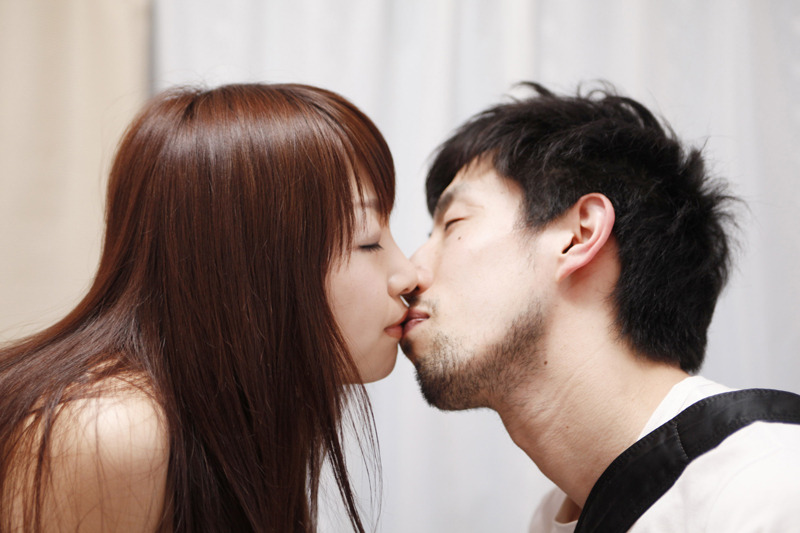
Generally, Japanese culture tends to handle emotional expression a little less directly than in English-speaking countries, especially where romance is concerned. In particular, couples in Japan aren’t nearly as likely to regularly say “I love you” as their Western counterparts are or be seen smooching in public.
In certain situations, though, these roles get flipped. For example, while most Westerners would feel awkward making the explicit statement, “Please be my boyfriend/girlfriend,” in Japan that exact phrase, tsukiatte kudasai, is a pretty common romantic milestone, and something that many actually expect their partner to say in order to explicitly recognize the nature of the relationship.
Now, couples can even have their affection officially recognized, as lovers in Japan can submit government documents certifying their love for each other.

